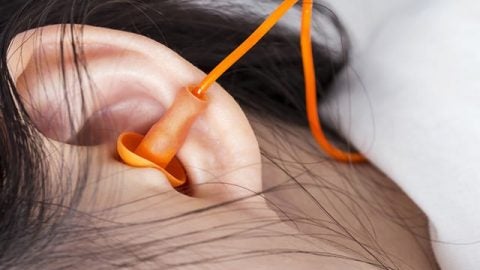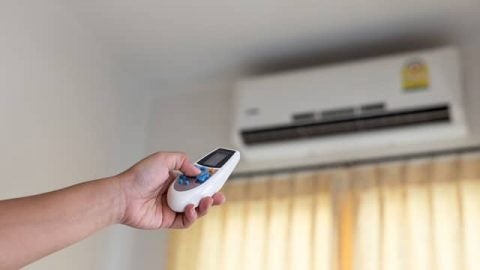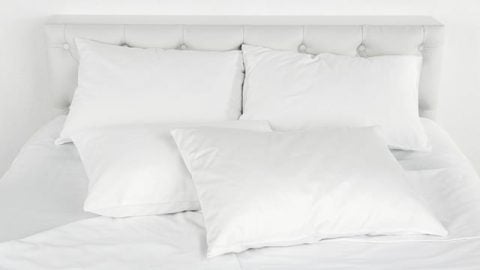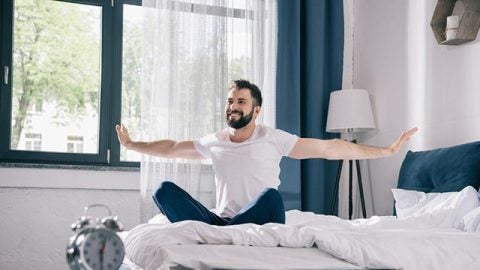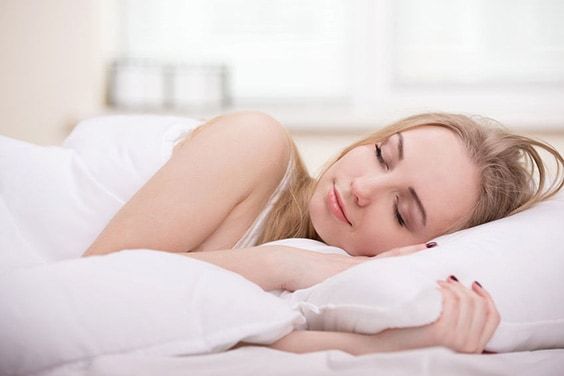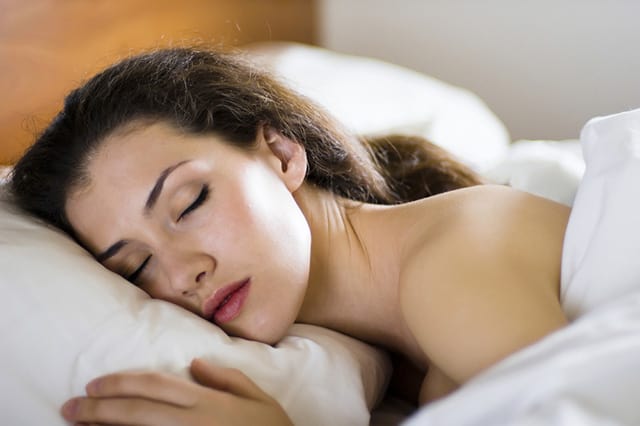Sleep affects your life in an incredible amount of ways, some of which you may not even realize. Your physical and mental health are key among these. Making sure your sleep is sufficient starts long before you even climb into bed, and even your sleeping environment should be taken into account if you want a truly worthwhile sleeping experience.
Creating an Ideal Sleeping Environment
The first step to getting a great night’s sleep is creating the perfect space to do so. Few things are quite as important as the room in which you sleep and the way you set it up. We’re not talking about Feng Shui here, we’re talking about removing distractions and setting things up so your body can do what it needs to make everything work as it should. Here are some great tips for a good night’s sleep and to aid you in building healthy sleep patterns.
Turning Off the Television and Electronic Devices
If you have a television in your room, consider removing it. There are a few reasons this is a good idea. First and foremost, if you’re heading into your room to watch television, you’re not using your bedroom for the purpose of sleep (which is what it’s designed for, after all). Now, many folks will watch television to get themselves ready for sleep. They’ll lay in bed and catch whatever late night television is on as a way to wind down.
While this may seem like a good idea, it’s not ideal to watch TV right before sleep, thanks to the fact the television gives off blue light. Blue light has a shorter wavelength than natural lights, and this can adversely affect melatonin, which helps us get to sleep. This can mess up our internal clocks, among other things.
For the same reason as televisions, mobile devices should be a no-no just before you lay down to rest. These carry their own other pitfalls, as well. While you may find yourself channel surfing with the television, mobile devices are loaded with things to constantly keep your brain engaged. Checking your latest emails, looking up the latest videos on YouTube or getting the latest from reddit can all keep you awake for quite some time.
Blue light is also an issue here, though there are apps and functions on many newer devices to curb the blue light issue. This is done through a warming of the light put out by the devices, using more red and yellow tones to attempt to simulate natural light. They call it “night” mode, among other names.
Lights
The darker you can get your room, the better chance you’re going to have of falling asleep. Night lights may be convenient, but your fear of the dark shouldn’t take precedence over your need for better sleep. Even lights from electronics can be an issue, so consider covering lights from fans or charging devices with electrical tape.
In fact, as you’re getting ready for bed, light should be avoided, as well. Keep things dim, rather than hanging out in your kitchen with its fluorescent bulbs. Your mind needs to relax a bit before falling asleep, which may seem a bit contrary when considering your brain is pretty active during sleep. It all comes back to that pesky blue light.
Sounds
As you might expect, distractions aren’t good for sleeping, either. Nothing is more distracting than an out of place sound. A clicking ceiling fan or the clacking of pet claws on hard flooring can alert your body to wakefulness and keep you awake. Sleeping with loud, high-tempo music on can have you tapping your feet or singing along in your head. None of these are going to help you get to sleep.
Fortunately, there are things out there which can help. If loud noises are an issue, such as neighbors or street traffic, consider wearing earplugs to bed. If earplugs don’t work, take a step up and purchase a white noise machine. These can even be helpful if external noise isn’t the issue. White noise can help cover up many other sounds, and some machines even offer other calming sound options, such as rain or the sound of flowing water. These have been successful for many people on their journey to find a more restful sleep.
Temperature
One of the stages of sleep, which we’ll get into later, includes a lowering of the body’s temperature. Facilitating this function is a great way to make sure you sleep better. By sleeping in a cool room, your body achieves this much more easily, thus helping this stage of sleep complete quickly, helping you to get into more restorative levels.
Anyone who has ever slept in a warm room can attest to the discomfort felt there. Waking up in a sweat isn’t something one wants to experience, so keep it cool in order to get the best sleep possible.
Comfortable Mattress and Pillows
If you want to sleep well, you should obviously make sure you’re comfortable. If you’re waking up every morning with aches and pains, having to do a whole lot of stretching and even taking pain medication to combat the hurt you’re feeling, you may have a bad mattress. Shopping for a mattress can be a bit of a hassle, sure, but it’s a necessary one if you want a good night’s rest.
Fortunately, there are a number of resources out there to help you choose the best mattress, and more high quality mattresses are becoming available online at fair prices which are just as good as the big brands you heard of growing up.
Routine
Perhaps the biggest sleep tip anyone can offer is to create a sleep routine. This isn’t always possible for everyone. Sometimes, work or other obligations get in the way, especially if you have a job that requires both day and night shifts. However, if you can make it work, do it.
Going to bed around the same time every night and waking up at the same time every day is a great start. It keeps your body at a decent rhythm, allowing you to make sure your sleep is optimized and making sure your energy levels are consistent throughout the day. Even if your cycle includes some daytime sleeping (which isn’t ideal, but is better than none), trying to get into a steady rhythm of sleep will help you in the long run. And this includes your sleep hygiene checklist such as brushing your teeth, flossing and washing your face. Make sure these things are done prior to your predetermined bedtime.
Amount of Sleep Time
Truthfully, there is no hard and fast rule for how much sleep people need. There are guidelines, however, to give you a general idea of what to aim for as you grow older. Here’s how many hours of sleep you should ideally get on a daily basis:
- Infants Zero to Three Months: 14 to 17 hours
- Babies Four to 11 Months: 12 to 15 hours
- Toddlers One to Two Years: 11 to 14 hours
- Children Three to Five Years: 10 to 13 hours
- Pre-teens Six to 13 Years: Nine to 11 hours
- Teens 14 to 17 Years: Eight to 10 hours
- Adults 18 to 64 Years: Seven to nine hours
- Seniors 65 and Older: Seven to eight hours
Now, if you want to know exactly how much sleep you personally need on a daily basis, there’s only one real way to find out: experimentation. Pick a day that you don’t have anything going on, go to sleep at a regular time and don’t set an alarm. Wake up when you wake up, see how you feel, and if you’re feeling good, that’s a great indicator. Do this a few times to see what works best for you.
Why Sleep?
You may be curious why such great importance is placed on sleep. Of course we need our rest to properly function, but do we need so much of it? Sleep is a major part of both our physical and mental health, and not getting enough of it can lead to problems with your heart and nervous systems, among other things. This all comes down to the stages of sleep.
The Stages of Sleep
Sleep has four stages, each of which we’ll walk you through:
In Stage One, your body rests into a very light sleep. This is the stage when you’re laying in bed and you feel like you’re falling asleep, but if someone mentions your name, you can still quickly become alert.
In Stage Two, the physical parts of sleep begin. You are asleep, but just a bit deeper than the previous stage. At this point, your heart rate begins to slow down and your body temperature starts to lower, which is why sleeping in a cool room is handy for falling asleep.
In Stage Three, you are well and truly asleep in this stage. This is the final stage of non-REM (which stands for non-rapid eye movement) sleep, and it’s very important. Your body is repairing and regrowing tissues and your immune system is getting a great boost.
REM sleep makes a stage all on its own.
In the REM stage, your heart rate picks up, as well as your breathing. Because of the brain’s activity, this is where your memorable dreaming happens. Your first REM stage will last somewhere around 10 minutes, but once it ends, the whole cycle starts all over, each time extending the length of the stage.
Sleep and Health
How do these stages of sleep work for your body and mind? Well, the most obvious part is the second stage, at which point your heart rate slows down. This is great for your body and blood pressure. If you’re not reaching this stage frequently, your blood pressure isn’t able to level itself out and you can become more prone to suffering from issues such as hypertension.
On the mental health front, this is also influenced by getting restful sleep. What happens when you get tired? You can become irritable and prone to doing things you may not otherwise do. Lack of sleep has even been linked to a “rewiring” of parts of the brain, which can lead to severe changes in decision making.
Conclusion
Creating healthy sleep habits is the best key to working toward achieving more and better sleep. It’s not about taking the right medications, unless you have some sort of actual medical condition. It’s not necessarily about meditation, unless that’s part of your nightly routine. No, the best tip you can get for healthy sleep is to make it a normal routine for you. Make sure you’re doing your best to get enough sleep each night, and we hope our tips above have given you further insight into achieving your ideal nighttime routine. Sleep well!


